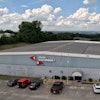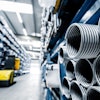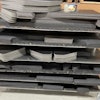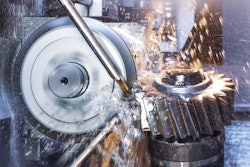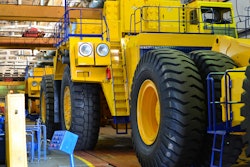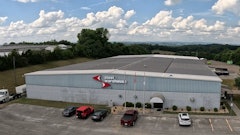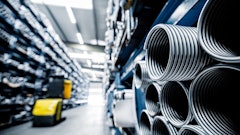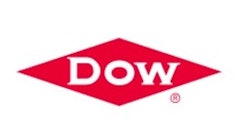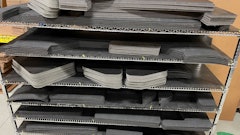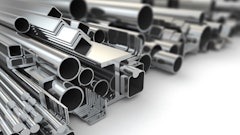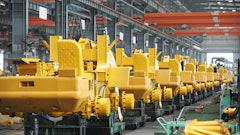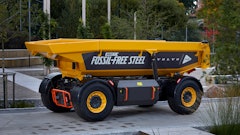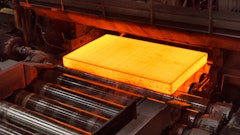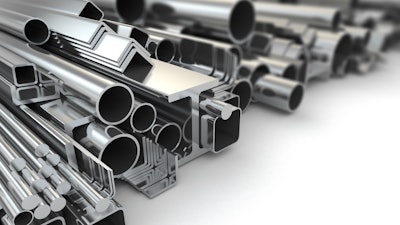
Seven of the leading groups representing the domestic steel industry and labor have sent a letter to President Joe Biden urging his administration to ensure steel tariffs put in place in 2018 to protect national security are preserved, according to a press statement issued by the American Institute of Steel Construction (AISC).
In early 2018, then-President Donald Trump imposed 25% tariffs on imported steel and 10% on imported aluminum from most countries, arguing such protections were necessary for U.S. national security to maintain healthy domestic production. In February, the U.S. Court of International Trade upheld these tariffs (Reuters, February 4, 2021) in a ruling denying a steel importer’s challenge to the duties. But while their validity was upheld, President Biden faces mounting pressured to remove the tariffs in light of supply shortages and skyrocketing steel costs.
U.S. steel producers hard hit by the COVID-19 pandemic have proven slow to recover but continue to ramp up production to capitalize on burgeoning demand and prices during the economic recovery. To ensure the industry maintains its competitive edge, the AISC, American Iron and Steel Institute (AISI), United Steelworkers union (USW), Steel Manufacturers Association (SMA), The Committee on Pipe and Tube Imports (CPTI), Specialty Steel Industry of North America (SSINA) and Alliance for American Manufacturing (AAM) sent a joint letter to President Biden asserting:
"Eliminating the steel tariffs now would undermine the viability of [the American steel] industry. Opponents of the steel tariffs argue that they should be eliminated to increase supply, given the current environment of rising prices and long lead times. This ignores the fact that the COVID-19 pandemic has posed unprecedented, but temporary, challenges to global supply chains in many industries — including lumber, semiconductors, concrete, agricultural products and cleaning products — as manufacturers respond to rapid and unpredictable shifts in customer demand and logistical difficulties. The same is true for steel."
The groups note that "domestic steel supply is responding to market signals", with steel production expanding by more than 50% in the last year and steel mill employment growing by nearly 3,000 since September. Since the tariffs took effect, U.S. steel producers have also announced plans to invest more than $15.7 billion in new or upgraded facilities, the letter points out.
Steel Bubble Soon to Burst?
But while demand continues to grow, causing prices to triple in the past year, a May 6 analysis by Matt Eagan, CNN Business, states the current steel boom could prove to be short lived. Timna Tanners, Bank of America analyst, is quoted as noting while "scarcity and panic" are lifting steel prices and stocks today, a "painful reversal" may be in store as supply catches up with "unimpressive demand."
Eagan goes on to cite Phil Gibbs, director of metals equity research, KeyBanc Capital Markets, who views steel prices to be at an "unsustainable level" – and in a bubble that will eventually burst.
Analysts forecast that steel supply will eventually not just meet demand but start to exceed it, causing steel prices to plummet. Rolling back the tariffs now could ease the limited supply shorter term and speed the industry toward more normalized pricing, assuming there is no prolonged or unexpected boom that further propels global steel demand.
Read more coverage from OEM Off-Highway on the steel tariffs and the heavy equipment industry's view of their impact.
SSAB Says U.S. Steel Tariffs have Twofold Impact
AEM Says Trump Tariffs Won't Help Manufacturers 'Win'
U.S. and European Associations Call for End of Tariffs
EU and U.S. Temporarily Suspend Tariffs
Equipment Manufacturers Support New Effort to Reform Section 232 Tariffs
